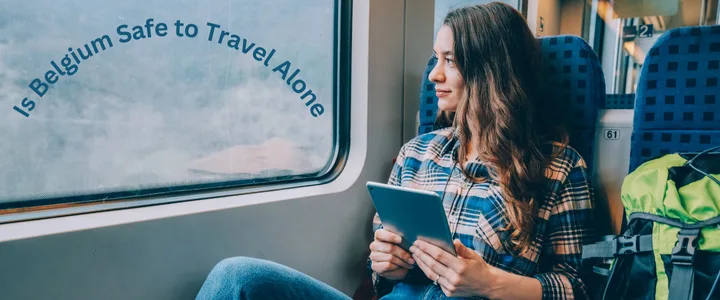Is Belgium Safe to Travel Alone?
When I first started traveling solo, I had a lot of concerns about safety, especially as a woman exploring new places on my own. After visiting Aruba and Croatia, I was ready to take on Belgium, but I still asked myself, “Is Belgium safe to travel alone?” With its rich history, stunning architecture, and welcoming people, Belgium seemed like a great choice for my next solo adventure.
But, just like any traveler, I wanted to be sure I was prepared for whatever might come my way, especially when navigating through the cities, using public transport, and exploring both day and night. Spoiler alert: Belgium ended up being an amazing experience, and I found it quite safe for solo travelers.
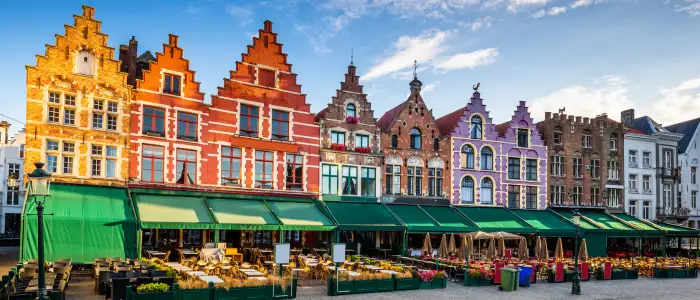
During my trip, I visited bustling cities like Brussels and Antwerp, where I felt comfortable walking around, even in the evening. I also enjoyed the peaceful charm of Bruges and Ghent, where I could relax and take in the beauty of the medieval towns. My travels in Aruba and Croatia had taught me a lot about staying safe on the road, but Belgium stood out for its ease of getting around and the general feeling of safety in the streets.
As a solo female traveler, I found that with a few common-sense precautions, Belgium was a secure and enjoyable place to explore on my own. I’d love to share my experiences, tips, and insights with anyone wondering how safe Belgium is for solo travel, especially for women, and how to make the most of your trip.
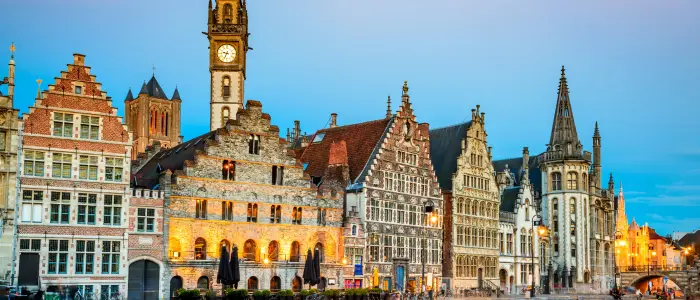
Table of Contents
How Safe Is Belgium for Solo Travelers?
Belgium is generally considered a safe country for solo travelers, ranking high in terms of safety compared to other European nations. However, like any destination, staying aware of your surroundings and understanding the local context is important.
Overview of Belgium’s Safety
Belgium’s Global Peace Index ranks it among the safer countries in the world. The country has low levels of violent crime, and the primary concerns for tourists are petty crimes like pickpocketing and scams, which are common in most European tourist hotspots. According to a 2022 crime report by Statista, Belgium experiences relatively low rates of serious crime, but petty theft, particularly in crowded places, is something to keep in mind.
Crime Rates in Belgium:
- Pickpocketing: Common in crowded tourist areas such as train stations and major landmarks.
- Scams: Tourists may encounter minor scams, like overcharging in certain areas or fake petitions.
- Violent Crime: Uncommon, with major cities like Brussels and Antwerp having much lower violent crime rates compared to global standards.
While petty theft might happen, violent crime against tourists is rare, making Belgium a largely safe choice for solo adventurers.
Perception of Safety by Locals and Tourists
Locals generally view Belgium as a safe country. Belgian cities are well-policed, and you’ll find that many locals feel comfortable walking around at night in well-lit areas. Tourists, especially those traveling solo, often report feeling safe while exploring Belgium’s cities during the day and night.
One traveler’s review on TripAdvisor noted, “I spent two weeks traveling alone across Belgium, from Brussels to Bruges, and never once did I feel unsafe. People were friendly, and I had no issues navigating public transport.”
By combining local insight with tourist reviews, it’s clear that Belgium ranks highly in terms of safety for solo travelers, making it a reassuring destination for those on their own.
best avoided at night.
That said, most travelers feel safe in popular tourist spots like Grand Place and Sablon. The key is to stay alert, especially at night, and stick to the well-traveled streets where there’s plenty of foot traffic.
Bruges
If you’re looking for a peaceful escape, Bruges is a dream come true. This fairytale city, with its cobblestone streets and medieval charm, has very low crime rates. Bruges is compact and walkable, which means you can easily explore without worrying too much about safety.
With minimal reports of petty crime, Bruges is particularly well-suited for solo travelers who want to enjoy a quiet, culturally rich destination.
Ghent
Ghent offers a mix of historical charm and modern vibes, making it another safe choice for solo travelers. The city’s large student population gives it a laid-back, friendly feel. Most areas, including the city center and major tourist attractions, are safe to visit even at night.
While there have been occasional reports of petty theft, Ghent’s crime rate is low, and its well-lit streets make it easy to navigate solo. Just be cautious when using public transportation late at night, as is common in any city.
Antwerp
Antwerp is a bustling city known for its fashion scene and cultural sites, and it’s generally considered safe for solo travelers. Like Brussels, Antwerp has certain areas that are best avoided after dark, but daytime exploring in places like the Cathedral of Our Lady or the Antwerp Zoo is perfectly safe.
Solo travelers should stick to well-populated areas at night, particularly near the central station, which can feel less secure during late hours.
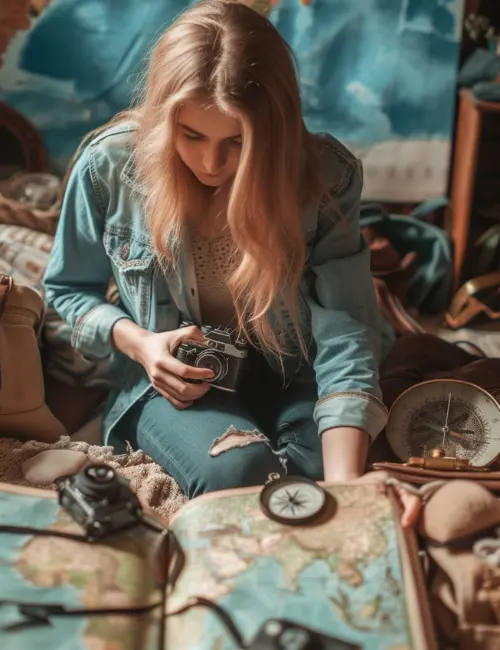
Common Safety Concerns for Solo Travelers in Belgium
While Belgium is generally safe for solo travelers, it’s essential to be aware of a few common safety concerns, particularly in more crowded or tourist-heavy areas. Here’s a breakdown of the most relevant concerns and how to address them:
Pickpocketing and Theft
Pickpocketing is one of the most common issues faced by tourists in Belgium, especially in busy areas like train stations, public squares, and major attractions. Some areas of Brussels, particularly Gare du Midi and around Grand Place, are known for pickpocketing incidents. However, it’s not something to panic over—just take a few precautions:
- Keep your valuables secure in cross-body bags or money belts.
- Avoid carrying large amounts of cash.
- Be cautious when using your phone in crowded areas.
- Use zippered pockets for wallets and other essentials.
By staying vigilant and not flashing expensive items, you can easily avoid most pickpocketing attempts.
Public Transportation Safety
Belgium has an extensive and efficient public transportation system, including trains, buses, and trams, all of which are generally safe. However, it’s worth noting a few tips to ensure a smooth experience:
- Daytime travel on public transport is very safe. Most solo travelers report no issues using trams or buses.
- Nighttime caution: While public transport remains safe at night, avoid empty or poorly lit stations.
- Keep an eye on your belongings, especially when traveling on crowded buses or trains during peak tourist hours.
Belgium’s train stations can be busy, so pay attention to your surroundings and avoid isolated areas late at night.
Scams Targeting Tourists
Like most tourist destinations, Belgium has a few scams you should watch out for. The most common scams in major cities include:
- Fake petitions: Scammers may approach you asking to sign a petition and then demand money.
- Street performers or fake guides: Some street performers or unofficial guides may try to overcharge tourists for photos or unnecessary services.
To avoid falling victim to these scams:
- Politely decline offers from strangers in crowded tourist areas.
- Stick to official tour guides and services.
Solo Female Travelers’ Safety in Belgium
For women traveling alone, Belgium is one of the safer European destinations. However, as with any city, it’s important to take general precautions:
- Stay in well-lit areas at night and avoid empty streets.
- Use reliable transportation like licensed taxis or rideshare services if traveling late.
- Consider using accommodation platforms that verify hosts, such as Airbnb or hotels with good safety ratings.
Solo female travelers generally find Belgium to be a safe and welcoming destination, with very few reports of harassment or serious safety concerns. Many women traveling alone report feeling comfortable walking around Bruges, Ghent, and the tourist areas of Brussels.

Tips for Staying Safe While Traveling Alone in Belgium
Although Belgium is a safe destination, it’s always a good idea to follow basic travel safety tips to ensure a smooth and enjoyable experience:
Accommodations
Choosing the right accommodation can greatly affect your experience as a solo traveler. Here’s how to pick safe, convenient places to stay:
- Opt for well-reviewed hotels or hostels with a strong reputation for safety.
- If booking an Airbnb, read reviews carefully and avoid places in neighborhoods flagged as unsafe by other travelers.
- Look for accommodations with 24/7 security or front desk services, particularly if you’re arriving late at night.
Navigating Belgium at Night
Belgium’s cities are generally safe after dark, but it’s always wise to be cautious when exploring solo at night. Here are a few tips to stay safe:
- Stick to well-lit, populated areas like city centers and tourist spots.
- Avoid poorly lit streets and neighborhoods that are known for being less safe, particularly in Brussels and Antwerp.
- If you’re feeling uncertain, take a taxi or use a rideshare service like Uber instead of walking or waiting at bus stops late at night.
Interacting with Locals
Belgians are generally friendly and welcoming to tourists, but it’s still important to be mindful of cultural differences:
- Be polite and respectful, especially in public spaces.
- Most Belgians speak Dutch, French, and English, so language barriers are rarely an issue. If you need help, most people will be happy to assist you in English.
If you encounter unwanted attention or feel uncomfortable in any situation, don’t hesitate to remove yourself from the area or seek help from local authorities.
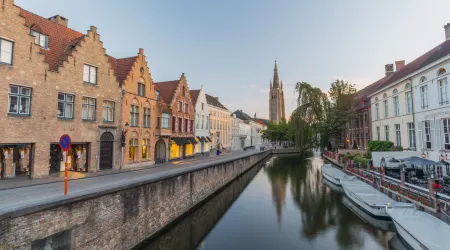
Emergency Contacts and Resources for Solo Travelers in Belgium
In case of an emergency, having important contact information on hand can make a huge difference. Here are key numbers and resources for solo travelers in Belgium:
Important Emergency Numbers
Belgium’s emergency services are reliable and can be accessed quickly. Here are the key numbers you should keep saved on your phone:
- Police: 101
- Ambulance and Fire Services: 100
- European Emergency Number: 112 (this works across all EU countries)
What to Do in Case of an Emergency
If you encounter an emergency while traveling alone in Belgium, here’s what you should do:
- Contact emergency services using the numbers above.
- Locate your nearest embassy if you’re facing a more complex issue, like lost travel documents or legal trouble. The U.S. Embassy in Brussels is located at Regentlaan 27, 1000 Brussels.
- If you need medical assistance, Belgium has a well-developed healthcare system with English-speaking staff in most hospitals.
Traveler Assistance Apps
Technology can be a great asset for staying safe while traveling alone. Here are some apps that can make your trip smoother:
- Google Maps: For navigation and finding the safest routes.
- TripIt: Organize your travel itinerary.
- Sitata: Provides real-time safety updates for your location.
- WhatsApp: A must for staying in contact with family and friends, especially in case of emergencies.
Is Belgium Safe for Solo Travel Compared to Other European Countries?
Belgium consistently ranks as one of the safer European countries for solo travelers. But how does it compare to its neighbors?
Comparison with Neighboring Countries
- Compared to France, which has seen more reports of tourist-targeted crime in Paris, Belgium generally has lower crime rates.
- In contrast to the Netherlands, Belgium shares similar levels of safety, but with less tourist congestion in certain cities, making it feel more peaceful.
- Germany and Belgium are comparable in safety, with both countries offering well-policed cities and a welcoming atmosphere for solo travelers.
Belgium’s compact size and excellent public transport system make it easy to get around, giving it an advantage for solo travelers looking for convenience and security.
Belgium’s Reputation for Solo Travel Safety
Belgium is often highlighted as a safe and accessible destination for those traveling alone, particularly for solo female travelers. Online forums like Reddit and travel blogs frequently praise Belgium for its friendly locals, safe streets, and ease of getting around.
Cultural Etiquette and Safety for Solo Travelers in Belgium
Understanding the local culture can enhance both your experience and safety. Belgium is known for its polite and respectful society, and adhering to local customs can go a long way in making your trip more enjoyable.
Understanding Belgian Customs and Behavior
- Greeting locals: A handshake is the standard greeting for most social and business encounters.
- Public behavior: Loud or disruptive behavior in public is generally frowned upon. Belgians value politeness and moderation in social settings.
By being aware of these customs, you can blend in more easily and avoid unwanted attention.
Language Considerations
Belgium has three official languages: Dutch, French, and German. In most cities, English is widely spoken, especially in tourist areas. Knowing a few basic phrases in French (in Brussels) or Dutch (in Flanders) can be helpful:
- “Bonjour” (Good day) or “Merci” (Thank you) in French.
- “Hallo” (Hello) or “Dank u” (Thank you) in Dutch.
Communicating clearly is important in any situation where you might need assistance, so don’t hesitate to ask for help in English, which most locals will understand.
Safety During Belgium’s Events and Festivals
Belgium is home to some of Europe’s most famous festivals and events, attracting huge crowds from around the world. But are these events safe for solo travelers?
Attending Festivals as a Solo Traveler
- Tomorrowland: One of the world’s biggest electronic music festivals, held in Boom, is safe for solo travelers but requires extra caution due to large crowds. Stay hydrated and make sure to have a meeting point in case you lose your group.
- Ommegang Festival in Brussels is a historical celebration with large public gatherings, but security is well-managed, making it a safe experience.
If you’re attending any large event, always stay aware of your surroundings, and avoid carrying large amounts of cash.
Public Gatherings and Protests
While protests and demonstrations can occur in Belgium, they are generally peaceful. If you come across one, it’s best to steer clear and not get involved. Police in Belgium are well-trained in crowd control, and protests rarely lead to violence, but it’s always wise to avoid such gatherings when traveling alone.
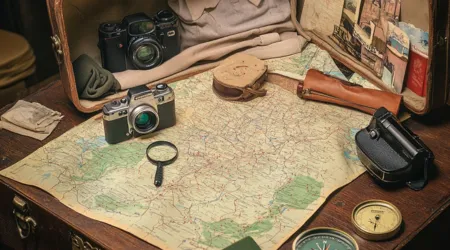
Solo Travel Packing Tips for Safety in Belgium
Packing smart is one of the easiest ways to ensure your safety and comfort while traveling solo. Here’s what you should bring for your trip to Belgium:
Safety Essentials
- Portable door lock: If you’re staying in hostels or unfamiliar accommodations, a portable lock can provide extra security.
- RFID-blocking wallet: To protect your credit cards from digital pickpocketing.
- Power bank: For keeping your phone charged, especially if you’re relying on maps or safety apps.
Weather-Appropriate Clothing
Belgium’s weather can be unpredictable, especially in autumn and winter. Make sure to pack:
- Waterproof jacket: Belgium’s weather can be rainy, so come prepared.
- Comfortable walking shoes: The cobblestone streets of Bruges and Ghent are charming but can be tough on your feet.
By packing appropriately, you’ll not only stay comfortable but also avoid unnecessary stress during your solo trip.
Conclusion
Belgium is a fantastic destination for solo travelers, offering a mix of historical sites, vibrant cities, and charming towns. With low crime rates, friendly locals, and a safe public transport system, it’s a great place for those looking to explore Europe independently. By following the tips outlined in this guide—staying aware of your surroundings, choosing safe accommodations, and packing wisely—you’ll be well-prepared for a safe and enjoyable adventure through Belgium.
Whether you’re a solo female traveler or just someone looking to experience Belgium alone, you can confidently explore this beautiful country knowing that it offers a secure and welcoming environment for all.
FAQs About Traveling to Belgium
Is Belgium safe for female solo travelers?
Yes, Belgium is generally very safe for female solo travelers. The crime rate is low, and cities like Brussels, Bruges, and Ghent are popular among solo travelers. As with any destination, it’s always important to stay aware of your surroundings, avoid poorly lit areas at night, and trust your instincts.
How safe is Belgium for tourists?
Belgium is considered a safe country for tourists. Violent crime is rare, and most visits are trouble-free. Pickpocketing can occur in crowded areas like train stations, so it’s important to keep an eye on your belongings, especially in tourist-heavy places.
Can you travel alone in Belgium?
Absolutely! Belgium is a great destination for solo travel. Its efficient public transport, walkable cities, and friendly locals make it easy to navigate on your own. Whether you’re visiting the cultural hubs or exploring charming towns, solo travelers can feel safe and welcomed.
Is it safe to walk around Brussels at night?
Brussels is generally safe, but it’s advisable to be cautious at night, especially in less crowded or poorly lit areas. Tourist districts like the city center are usually well-patrolled and lively, but always avoid flashing valuables and stay in well-populated places after dark.
Is Belgium friendly with the US?
Yes, Belgium maintains strong diplomatic relations with the US. Belgians are generally friendly towards American tourists, and US travelers will find Belgium to be a welcoming and culturally rich destination.
Do US citizens need a visa to visit Belgium?
No, US citizens do not need a visa for short stays in Belgium, up to 90 days, for tourism or business purposes. However, starting in 2024, US citizens will need to apply for an ETIAS travel authorization before entering any Schengen Zone country, including Belgium.
What is the safest country in Europe to visit alone?
While Belgium is very safe, other European countries like Iceland, Switzerland, and Finland consistently rank as some of the safest places in the world to travel alone, with low crime rates and excellent public safety standards.
Are people friendly in Belgium?
Yes, people in Belgium are generally friendly and polite. While Belgians may not be overly expressive or outgoing initially, they are kind and helpful, especially if you approach them with respect.
What is the safest country to visit by yourself?
Iceland is often considered the safest country to visit by yourself. It has a low crime rate, a welcoming atmosphere, and stunning natural landscapes, making it a top choice for solo travelers.
What to know before traveling to Belgium?
Before traveling to Belgium, it’s important to know that the country is divided into two main regions: Flanders (Dutch-speaking) and Wallonia (French-speaking), with Brussels being bilingual. Public transport is reliable, and it’s a good idea to familiarize yourself with basic phrases in both French and Dutch. Also, the weather can be unpredictable, so pack accordingly.
Can a U.S. citizen live in Belgium?
Yes, U.S. citizens can live in Belgium, but they will need to apply for a residence permit if they plan to stay longer than 90 days. This may require securing a job, enrolling in school, or having sufficient financial resources to support themselves.
Is the USA visa-free to Belgium?
Yes, US citizens can visit Belgium for up to 90 days without a visa for tourism or business purposes, but an ETIAS authorization will be required starting in 2024 for short stays.
Is tipping expected in Belgium?
Tipping is not expected in Belgium as service charges are usually included in the bill. However, if you receive exceptional service, it is appreciated to round up the bill or leave a small tip.
What is the famous food in Belgium?
Belgium is famous for its waffles, chocolate, fries, and moules-frites (mussels with fries). Another Belgian specialty is stoofvlees, a rich beef stew often served with fries, and of course, Belgium is world-renowned for its wide variety of beers.
Do they speak English in Brussels?
Yes, many people in Brussels speak English, especially in tourist areas and businesses. However, the official languages of Brussels are French and Dutch, so it’s helpful to know a few phrases in either language for politeness.

